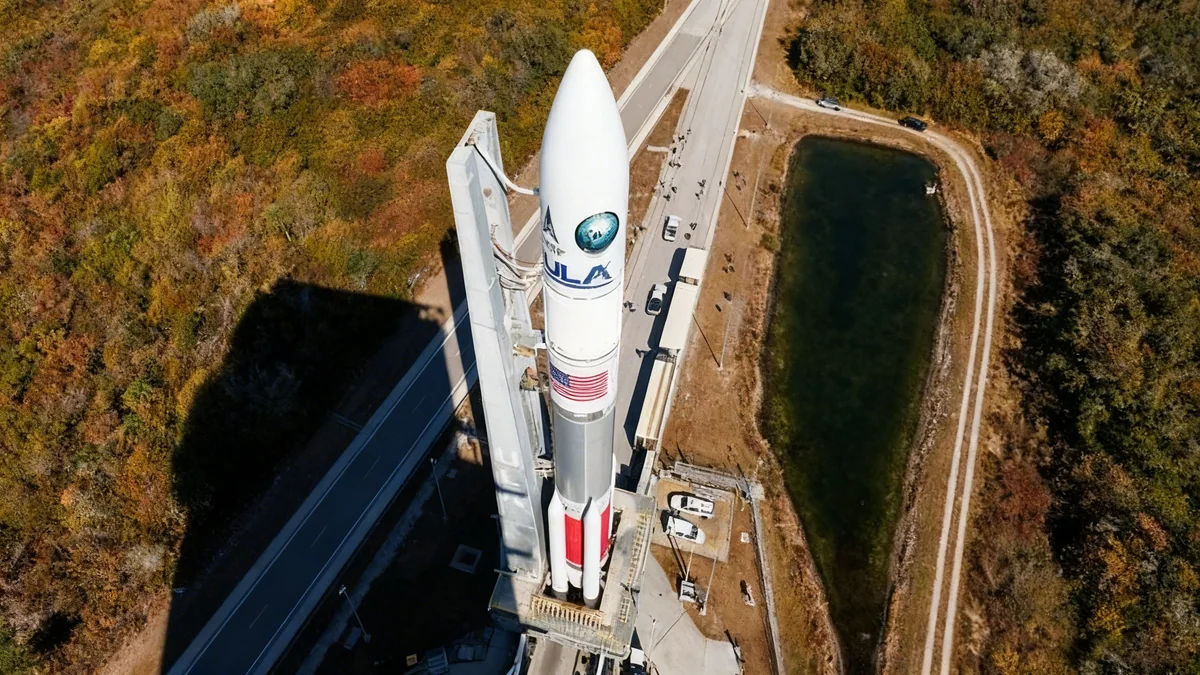Recent market data shows significant trading activity for Alphabet, Berkshire Hathaway, and GE Aerospace, positioning them as key companies for investors monitoring the expanding space industry. While not exclusively space-focused, their extensive operations and technological capabilities provide substantial exposure to a sector driven by innovation and government investment.
The commercial space economy encompasses a wide range of activities, from satellite development and launch services to off-Earth infrastructure. The increased trading volume in these established firms suggests a growing investor appetite for stable entry points into this high-growth field.
Key Takeaways
- Alphabet, Berkshire Hathaway, and GE Aerospace have recently experienced the highest dollar trading volume among stocks with ties to the space industry.
- Investing in these companies offers exposure to the growing commercial space economy, which is fueled by technological advancements, private funding, and government contracts.
- Each company has distinct business segments that contribute to or support the aerospace and defense sectors, providing a diversified approach to space-related investments.
Understanding the Modern Space Economy
The term "space stocks" refers to publicly traded companies involved in space-related business activities. This includes a diverse array of operations such as manufacturing satellites, providing rocket launch services, developing space tourism, and building infrastructure beyond Earth's atmosphere.
Investment in this area grants access to the rapidly growing commercial space market. This expansion is powered by several key factors, including continuous technological innovation, substantial government contracts from agencies like NASA and the Department of Defense, and a significant influx of private capital.
The sector is no longer limited to legacy aerospace giants. It now includes a dynamic mix of emerging startups, often called "newspace" companies, and specialized exchange-traded funds (ETFs) that focus exclusively on the space industry. The recent high trading volumes for Alphabet, Berkshire Hathaway, and GE Aerospace indicate strong market interest in large, established corporations with significant roles in this evolving landscape.
Alphabet Inc. (GOOGL): A Technology Powerhouse with Space Applications
Alphabet Inc. operates a vast portfolio of products and platforms across the globe. While best known for its consumer-facing services, the company's structure allows it to engage with the space sector through several key divisions. It is organized into three primary segments: Google Services, Google Cloud, and Other Bets.
The Google Services segment includes core products like Search, Android, Chrome, and YouTube. While not directly space-related, the data and connectivity infrastructure supporting these services are critical for the modern world, which increasingly relies on satellite technology.
Indirect Space Sector Involvement
Many technology giants like Alphabet contribute to the space economy indirectly. Their cloud computing platforms are essential for processing the massive amounts of data generated by satellites and space missions. Furthermore, their research in AI, robotics, and materials science often has direct applications in aerospace engineering.
The Google Cloud division provides infrastructure, data analytics, and machine learning services that are vital for aerospace companies. These firms rely on high-performance computing to design spacecraft, analyze mission data, and manage complex logistics. Alphabet's robust cloud platform makes it a key technology partner for the industry.
The "Other Bets" segment is where Alphabet houses its more experimental and long-term projects. Ventures in this division often explore cutting-edge technologies that could have future applications in space exploration, autonomous navigation, and advanced communications, making it a forward-looking component of its connection to the space economy.
Berkshire Hathaway Inc. (BRK.B): The Industrial Bedrock
Berkshire Hathaway Inc. is a multinational conglomerate with a diverse range of subsidiaries. Its business activities span insurance, freight rail transportation, and utilities, providing a foundational role in the industrial economy that supports the aerospace sector.
The company's extensive holdings in manufacturing and industrial products mean it supplies critical components and materials used in aerospace and defense. This indirect but essential role provides stability and broad market exposure.
Precision Castparts Corp.
One of Berkshire Hathaway's key subsidiaries is Precision Castparts Corp. (PCC). PCC is a major manufacturer of complex metal components and products for the aerospace and power generation industries. It supplies critical parts for nearly every aircraft engine and airframe program in the world, making it a cornerstone of the aerospace supply chain.
Through its subsidiaries, Berkshire Hathaway is also deeply involved in energy and transportation. It operates one of North America's largest railroad systems, which is crucial for transporting raw materials and finished goods for the manufacturing sector. Its utility businesses generate and distribute electricity from a variety of sources, powering the industrial facilities that build aerospace technology.
Investing in Berkshire Hathaway is often seen as a bet on the overall health of the industrial economy. Its connection to the space sector is rooted in its role as a fundamental supplier and infrastructure provider, making it a less direct but highly significant player.
GE Aerospace (GE): A Direct Leader in Aviation and Defense
GE Aerospace is a global leader in providing products and services for the aviation industry. The company, formerly part of the larger General Electric conglomerate, now focuses specifically on aerospace and defense, making its connection to the space sector direct and clear.
The company operates through two main segments: Commercial Engines and Services, and Defense and Propulsion Technologies. This structure allows it to serve both civilian and military aviation markets comprehensively.
In the commercial realm, GE Aerospace is a leading producer of jet and turboprop engines for a wide range of aircraft. It also provides integrated systems and aftermarket services, supporting global airlines and business aviation. This segment represents a massive and established part of the global economy.
The Defense and Propulsion Technologies segment focuses on military applications. It supplies engines and systems for military aircraft, including fighters, bombers, tankers, and helicopters. This deep integration with national defense programs makes GE Aerospace a critical contractor for governments worldwide and a key player in technologies that often overlap with space applications.
According to industry analyses, the demand for both commercial and military propulsion systems is expected to remain strong, driven by fleet renewals and global security requirements. This positions companies like GE Aerospace for sustained activity.
With its specialized focus, GE Aerospace represents a direct investment in the technologies that enable modern flight and defense. Its expertise in propulsion and complex systems is fundamental to the broader aerospace industry, which includes the development of next-generation space vehicles.





